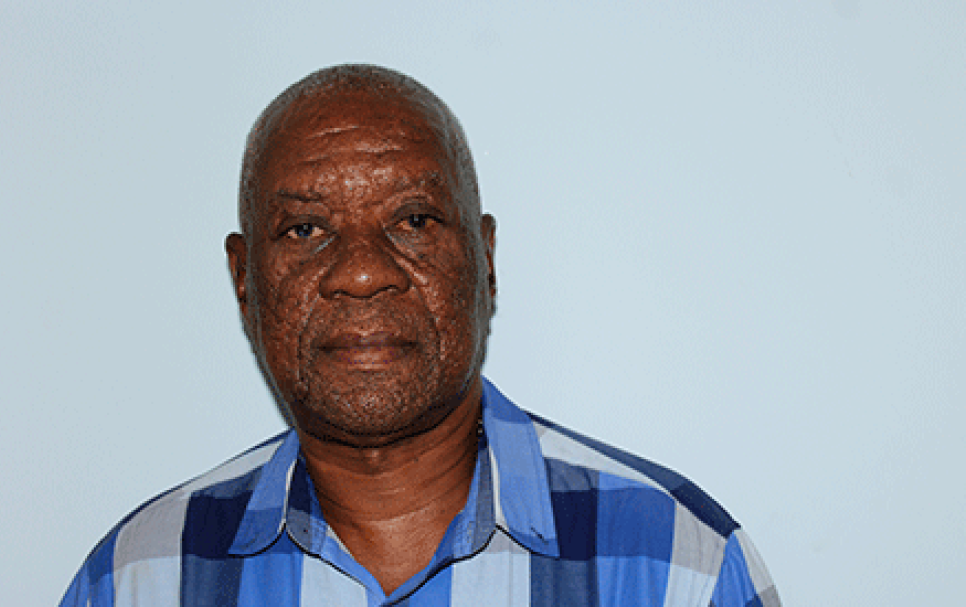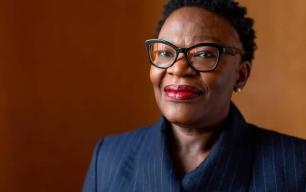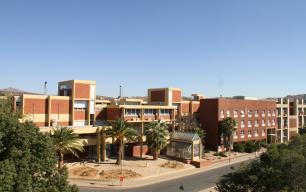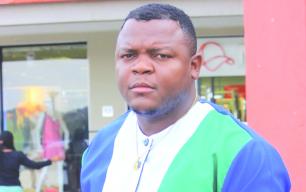Beyond the gender equality narrative

- By Alexactus T Kaure
Last year’s general and presidential elections brought the issue of gender equality into sharp focus. It was a call for a woman president. Just any woman. It was cast in those fashionable terms of gender mainstreaming, gender balancing, woman empowerment and gender equality. Former president Hifikepunye Pohamba`s son said his father delivered the first non-Ovambo president and will see the first woman president too. So the debate heated up.
The academic Ben Mulongeni said a call for female president was stupid. Instead he argued that we want a good president. Look at the quality of the president who is competent, patriotic and whose ideology is clear, he said. Former Prime Minister, Nahas Angula also known as Citizen Katusha, chipped in to say that the gender of Namibia`s next president was both irrelevant and divisive.
The former PM went on to say that: “I do not see a difference between a man and woman apart from their biological make-up. Discussions about gender, generations, tribes and regions are very divisive.” Academic at NUST, Kaitira Kaindjii, wrote that: “the narrative being bandied around sentiments that gender should not be a consideration nor a criterion for presidential qualification, reeks of patriarchal hegemony, misogyny and pure bigotry. He further said that the addition of competency as a factor in this mix, leaves a lot to be desired.”
Where is the logic here? Does he mean that women are not competent enough to be judged on that criterion or what?
But here we are. We have a woman president and woman deputy vice-president. So, the Namibian society is after-all not as patriarchal as some people like to argue. This headline in The Namibian speaks to that issue: “NNN praised for empowering women” and another one reads: “NNN leads women to fresh territory.”
Political commentator, Erika Thomas, expressed excitement saying it was time that women are given a chance to lead. She further said that the president has picked a formidable, vibrant team of young people who are capable of leading Namibia. As if the praise singing was not enough, she went on to say that: “women are incorruptible and can therefore be great leaders if supported.”
The swearing-in ceremony was billed as a significant event highlighting Namibia`s commitment to gender equality.
Gender specialist, Michael Conteh writing in The Namibian newspaper says: “a triumph for gender equality and collective progress.” This is apparently because the President has appointed more women than men in her cabinet. The question is: which women did she empower? Is it the rural women, the hewer of wood and drawer of water? Or women whose shacks in our shanty towns/slums and are being destroyed by fires?
This gender narrative is being advanced by educated middle class women and their male cohorts, who are well-off, with good jobs and all the material resources at their disposal, but who still want to climb higher on the political ladder.
To say that women have been invisible or underrepresented in our political system is a lie being perpetrated by serial liars. Let us, for context, tease out some of the facts on the ground.
No names needed here, because we all know who they were or still are. Here we go. The second highest office in our political system, before this unnecessary vice-president position was introduced, that of a Prime Minister, was once occupied by a woman and another woman as her deputy. Writing in The Namibian newspaper early this year, Okeri Ngutjinazo said: “Namibia`s president-elect and prime minister are both women.
This is notable given that the five most common ministerial posts previously held by female cabinet members were; women and gender equality, family and children affairs, social inclusion and development, social protection and social security, and indigenous and minority affairs.”
The all-important ministries of finance, education, gender equality, youth and sport, local government and housing, National Planning Commission (NPC) as well as the Social Security Commission, were once occupied by women. Then you have the ministries of industrialization and trade, home affairs, ministry of justice, attorney-general, prosecutor-general, international relations and trade that were once headed by women and some are still.
Deputy Ministers and executive directors are in that mix. The deputy director of the ACC is a woman. Then we have had three women governors for Khomas, Karas and the great Kunene Region. On a lighter note, the team that won The Namibian Newspaper cup from Kunene Region, is being coached by a woman. Did we leave someone out? Oh! One of Namibia oldest political parties, NUDO, is being led by a woman president and the founder and editor of a leading daily newspaper, was Madam Editor.
Thus to say, it is time for women to lead is being disingenuous or to play ostrich politics to say the least, because women have been in leadership positions with their male counterparts for the past 35 years. Whether they have performed in their respective portfolios or not, is hard to say. After-all some of the appointments have been political appointees with people being wheelbarrowing into positions in the name of gender or political affiliation.
However, the United Nations Women`s division maintains that, at the current pace worldwide, “gender equality in the highest positions of power will not be achieved for another 130 years.” That more still needs to be done to involve women in government. In Namibia, we have now closed that gender gap with the president, vice-president and speaker of the National Assembly, all being led by women.
Coupled with that, you then have a new cabinet of 14 ministers that include nine women and six men.
The fundamental question is: after closing the gender gap in our political system, what is next? I think it is now time for our nation to address some of the existential issues facing our people.
As a Marxist, one cannot ignore the issue of poverty and economic inequality. We are ranked as the 2nd most unequal country in the world, which defy logic given our small population of about 3 million in a relatively wealthy country. During the 2025 State of the Nation Address, Independent Patriot for Change’s president, Panduleni Itula said: “we are too few to be poor.”
During the Workers Day celebrations president Netumbo Nandi-Ndaitwah said the same. Which begs the question: why are we poor?
In 2022, the late President Hage Geingob said Namibia`s current high poverty rate is a repercussion of the apartheid system. He said that in response to the World Bank that said 1.6 million Namibians were living in poverty. This is despite the country having become independent from 32 years ago at the time.
Unlike the gender equality issue, poverty cuts across gender lines, as it affects both women and men. It also cuts across regions, generations and ethnic divide, with the marginalized San community being on the extreme end of this poverty circle. Poverty can manifest itself in many forms including the lack of food and the quality of dwellings were people live.
You have people in places like Tsumkwe sleeping in plastic and cardboard houses. We have a clear and visible divide in the standard and quality of dwellings found in residential suburbs in our towns and cities – the slums, ghettos, and shanty towns versus the affluent suburbs.
We can no longer blame colonialism and apartheid, for our developmental and economic challenges, after a good 35 years of independence. What is to be done? It is a clear class struggle between the have and have-nots. Poverty reduction, alleviation or elimination does not feature in the president’s bag of promises such as creating 250 000 jobs and earmarking N$85 billion for that, treating corruption as treason, building Olympic-standard sports stadiums and fighting graft in the oil and gas sectors.
No wonder she backtracked on one of her campaign promises: to increase the old age pension grant to N$3000, which is clearly a small step towards poverty alleviation. After all, this government has never entertained the idea of a Basic Income Grant.
Alexactus T Kaure is a freelance writer and deconstructionist scholar. He is the author of: Angola from Socialism to Liberal Reforms.
- 196 views










Comments